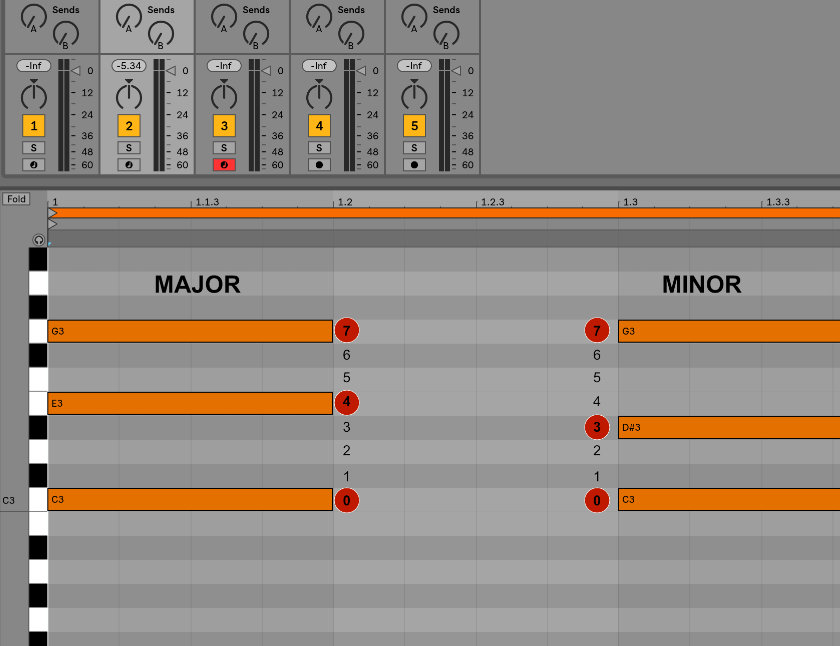
I've played bass guitar for about 10 years in the professional band and didn't know music theory. As a bass player, I even didn't need to know chords. I was able to compose every my bass line just listening other instruments. But now for electronic music is really a good idea to know at least basics of chords structure.
I'm also a programmer, so the best way to learn accords for me will be using codes. I think is also a great learning idea for non-musicians
How to Use the Codes
- pick any key on your piano roll in your DAW software, this is your start point or zero point
- starting at Zero, count up the keyboard to complete the given code
- sign ^ means the note raised one octave
- draw the chords on piano roll and experiment to find melodies
Common Chord Codes
- Major Chord (0-4-7)
- Minor Chord (0-3-7)
- Major 7th Chord (0-4-7-11)
- Minor 7th Chord (0-3-7-10)
- Augmented (0-4-8)
- Diminished (0-3-6)
Major Chord Codes
- Major (0-4-7)
- Major 7th (0-4-7-11)
- Major 9th (0-4-7-11-2^)
- Major 11th (0-4-7-11-2^-5^)
- Major 13th (0-4-7-11-2^-6^-9^)
- Major Sixth (0-4-7-9)
Minor Chord Codes
- Minor (0-3-7)
- Minor 7th (0-3-7-10)
- Minor 9th (0-3-7-10-2^)
- Minor 11th (0-3-7-10-2^-5^)
- Minor 13th (0-3-7-10-2^-5^-9^)
- Minor 6th (0-3-7-9)
More advanced chords and its codes you can find on Busy Works Beats website.
Now let's start to experiments with codes drawing them on the piano roll of Ableton Live or any other DAW software. Happy music drawing and coding!